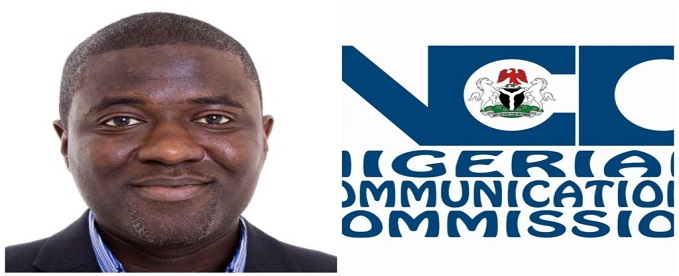Telecom
The NCC, Telcos and the Tariff Discourse

By Dr. Falade Muritala Adesola
The telecoms sector in Nigeria is viewed by some as a model of regulatory excellence. Other African countries often visit Nigeria to study the sector, aiming to understand the regulatory framework established by the NCC. This regulatory excellence is evident in the growth and success of the telecoms industry, which currently contributes over 16% to Nigeria’s GDP.

Aminu Maida, executive vice chairman, NCC
The telecoms industry in Nigeria is a source of pride for everyone; it’s arguably the only sector that can be considered a successful model of liberalization in the country.
Amidst all the successes, the industry is still faced with multiple challenges, including multiple taxation, vandalisation, and changing macro realities. Noteworthy of mention is efforts by the NCC under the new Executive Vice Chairman, Dr Maida to further reposition the industry. Whilst the focus in the past has always been quality of service (QoS) the direction under the new EVC has shifted to quality of experience (QoE) which is more customer-centric and places more demands on the telecoms operators.
The EVC has continued to emphasize this at various engagements with stakeholders in the industry. Beyond advocacy, the visible steps taken so far by NCC under Dr Maida aimed at safeguarding telecom infrastructure deserve commendation. The recent incident of multiple fibre cut, which resulted in widespread network disruptions for one of the major telecoms operators, prompted swift action from the EVC. His advocacy for stricter penalties against perpetrators led to moves by the government to criminalize cable damages and vandalisation of telecoms infrastructure. This proactive stance not only deters future recklessness but also instils confidence among telecoms operators regarding the safety of their investments. However, the long-term viability of the industry hinges on a multifaceted approach that will include protection of telecoms infrastructure, which the NCC is currently spearheading, and sustainable pricing mechanism.
The Nigerian economy is currently grappling with new economic realities that continue to threaten its stability. These realities are not unique to Nigeria but rather a global phenomenon affecting countries around the world. A complex set of factors are exerting considerable pressure on the global economy and causing a slowdown in global growth. This is occurring alongside a marked increase in inflation. As a result, businesses are confronted with a range of challenges including rising costs of capital, a tight labour market, and geopolitical risks. These challenges have been worsened by disruptions due to the COVID-19 pandemic, the war in Ukraine, Israel, and the tensions between the US and China. Many countries are revisiting their policies and implementing new strategies to navigate the turbulent waters.
In Nigeria, the struggle to strengthen the value of the naira to the dollar has continued to gallop as the Central Bank of Nigeria (CBN) continues to pursue new approaches to address the situation. However, challenges such as infrastructural deficit and security concerns continue to persist, further exacerbating the issue. Yet, Nigeria continues to face a significant rise in food prices over the past few years, worsened by the removal of subsidies on petrol, amongst other things. This has resulted in a weakened purchasing power for many citizens with attendant effects on businesses.
In recent times, Nigeria’s naira has tumbled across both official and unofficial markets due to increased forex demand, causing a significant spike in prices of goods and services across the country. The National Bureau of Statistics (NBS) reported that items contributing to the inflation’s headline index on a year-on-year basis are food and non-alcoholic beverages (16.42%), housing, water, electricity, gas and other fuel (5.30%), clothing and footwear (2.24%), and transport (2.06%). The NBS explained that the rise in food inflation on a month-on-month basis is due to an increase in the average prices of bread and cereals, potatoes, yams, and other tubers, fish, coffee, tea, and cocoa.
These developments paint a bleak picture of the current economic situation in Nigeria and amid all these, discourse around telecoms tariff review is beginning to take centre stage, drawing attention to the need for a delicate balance between economic realities, quality of experience, which impacts directly on customer satisfaction, and telecommunications industry sustainability. For over a decade, major telecom operators like Airtel, MTN, and GLO have maintained their pricing structures, despite mounting challenges such as currency devaluation and inflation while other sectors have adjusted prices to cope with economic fluctuations.
For instance, entertainment giant, DStv, has increased its prices more than two times in the past year. Netflix has also reviewed its prices. Nigerian Breweries have also adjusted their prices to reflect the current realities, but telecom operators have maintained their pricing despite economic fluctuations, grappling with a devalued currency and rising operational costs.
In Nigeria’s telecommunications sector, diesel consumption is a critical factor influencing service reliability and progression. With numerous sites dispersed across the nation, a substantial portion operates on generators 24/7, necessitating continuous fuel supply. This escalating cost of diesel not only directly impacts operational expenses but also cascades into broader challenges such as site accessibility and infrastructural maintenance. As prices soar across various sectors, the telecom industry continues to grapple with the dilemma of maintaining quality services while operating within constrained pricing frameworks.
The prevailing reality suggests that the long-term viability of the telecoms sector now hinges on striking a delicate balance between affordability and quality of experience for consumers on the one hand, and profitability and survival for operators on the other hand.
Quality of experience stands at the forefront of consumer expectations in the telecom sector. However, the telecoms operators must continue to invest to maintain superior quality of experience. In the same vein, continuous and increased investment is a function of profitability. The telcos can only invest from their profits. There can be no investment without profitability. One way to gurantee profitability and sustainability of the industry is a review of the existing pricing structure.
Pricing autonomy is a linchpin for industry sustainability. The ability to set cost-reflective tariffs is indispensable for ensuring adequate returns on investment and fostering long-term viability. Telecom operators require a more transparent and collaborative approach to tariff adjustments, emphasizing the importance of a pricing framework aligned with operational realities. The current pricing window, sanctioned by regulators, is a foundation, but the industry needs greater flexibility to navigate cost fluctuations while ensuring service quality and accessibility remain uncompromised.
The clamour for cost-reflective tariffs is not merely about short-term gains but a strategic imperative to sustain the sector’s growth trajectory. The transition from 2G to 5G and with 6G on the way symbolizes the industry’s evolution, made possible by substantial investments that fuel innovation and expand service capabilities. However, without conducive regulatory frameworks that incentivize investment, the industry risks stagnation, jeopardizing future advancements and undermining service availability.
The telecommunications industry in Nigeria is currently at a crossroads where infrastructural challenges, pricing dynamics, and regulatory frameworks intersect, offering a unique opportunity for swift and collective action. A thriving and resilient telecommunications ecosystem has the potential to empower individuals, drive economic growth and enrich lives across the nation of Nigeria. Whilst the industry regulator has delivered commendably, prevailing realities demand a new approach to ensure continued viability of the sector.
Dr. Falade Muritala Adesola is a Senior Lecturer and former HOD, Computer and Information Sciences Department, Trinity University.
Telecom
MTN Group Announces Proposed Full Acquisition of IHS Towers

MTN Group has revealed that the board of IHS Towers accepted its offer of US$8.50 per share, positioning MTN to boost its stake to 100% ownership following IHS’s divestment of Latin American assets.

MTN Group
The potential transaction is subject to various approvals and the delisting of IHS from the New York Stock Exchange (NYSE).
Upon the completion of IHS’s announced disposals (on 11 February and 17 February 2026) of its Latin American assets, it is intended that MTN will acquire 100% of IHS’s remaining business.
IHS is one of the world’s largest tower companies, with nearly 29 000 high-quality towers in Africa serving various mobile network operators in five key MTN markets.
The proposed transaction, which follows discussions noted on 5 February 2026, marks an important step to unlock compelling value for MTN and strengthen and
reintegrate its ownership of critical digital infrastructure across Africa. For IHS shareholders, it provides them with an attractive opportunity to crystallise value.
The funding for the proposed transaction of the remaining shares MTN does not already own, for a consideration of some US$2.2 billion, will be through cash of
approximately US$1.1 billion on IHS’s balance sheet, along with available liquidity and debt from MTN.
MTN has approximately 24.7% shareholding in IHS. As part of the transaction, it intends to take the company private through the acquisition of all outstanding
shares it does not own, pursuant to a cash merger.
By reintegrating the tower assets, MTN will be able to internalise the margin currently paid to IHS, benefit from current and future incremental third-party
revenues, improve cost predictability and unlock significant long-term value embedded in its existing investment.
“This proposed transaction is a pivotal step in further strengthening MTN Group’s strategic and financial position for a future where digital infrastructure will become ever more essential to Africa’s growth and development,” said MTN Group President and CEO Ralph Mupita.
“This transaction gives us a unique opportunity to buy back our towers and strengthen our ability to be partners for progress to the nation states in which we operate.”
“For IHS customers and partners across the continent, we commit to continuing high standards of service and the right governance of what is the largest standalone and
integrated tower company in Africa, enabled by the excellent people within IHS.”
Through this transaction, shareholders of IHS will receive US$8.50 per share. This translates to an 9.7% premium to the 30-day volume-weighted average price as at
4 February 2026 (the last day of trading before the release of MTN’s cautionary announcement) on the NYSE, enabling them to unlock the value of their investment.
Long-term IHS shareholder Wendel has provided a letter of support to vote in favour of the transaction and will receive full liquidity on its shares upon closing.
With support from Wendel (and certain affiliates) and MTN being able to vote at a general meeting, ~40% has already been secured of a minimum two-thirds approval
of voting shareholders.
IHS Chairman and CEO Sam Dawish commented: “The proposed transaction deepens our long-standing partnership with MTN as it combines Africa’s largest
mobile network operator with one of its largest digital infrastructure platforms and underscores the strong connection between IHS Towers and the African continent.”
In structuring this transaction, MTN remains focused on disciplined capital allocation inclusive of shareholder remuneration going forward. No new equity issuance will be required at the MTN Group level and the funding plan allows for a short-term increase in leverage. The transaction is forecast to be accretive to net income and cash flow.
The proposed transaction is subject to IHS shareholder approval, regulatory approvals in the relevant markets and customary closing conditions.
Telecom
MTN, BUA, Dangote & Other Industry Giants Triumph at NGX Made of Africa Awards

Nigerian Exchange Group (NGX) hosted its annual Made of Africa (MOA) 2025 Awards on Monday, February 4, 2026. The event, held during the NGX year-end celebrations, brought together regulators, listed companies, and market operators such as MTN, BUA, Dangote, Transcorp, to celebrate achievements in compliance, sustainability, and market performance.

In his opening remarks, Dr. Umaru Kwairanga, the Chairman of Nigerian Exchange Limited, said “Excellence in compliance, sustainability, and several other categories recognises the fact that capital market operators and quoted companies must be standards not only in terms of the size of their operations but also adherence to regulations and best practices of corporate social responsibilities.”
He emphasised that the awards serve as a benchmark for excellence. He noted that the 2025 honourees demonstrated significant improvements in branding, customer service, and operational standards despite a challenging economic environment in Nigeria.
Among the evening’s significant winners was MTN Nigeria, which was honoured for its commitment to corporate transparency. The technology giant received the award for Leadership in Sustainability Reporting, emerging as the winner in a category that included Seplat Energy, BUA Cement, and Transnational Corporation of Nigeria PLC.
The award recognised the brand’s adherence to both national and global reporting standards, reflecting its role in advancing environmental, social, and governance (ESG) practices within the Nigerian corporate space.
Tobe Okigbo, Chief Corporate Services & Sustainability Officer, MTN Nigeria, said “This recognition for Leadership in Sustainability Reporting underscores our commitment to transparency and aligning with global best practices.
“As the capital market moves toward greater accountability, MTN Nigeria remains dedicated to demonstrating resilience and faith in the Nigerian economy through comprehensive and standard-compliant reporting.”
The ceremony saw several other major players in the financial sector secure multiple accolades. Chapel Hill Denham emerged as one of the night’s most successful firms, winning in categories including Fund Manager with the Largest Listed Fund Size and Market Operator with the Highest Value of Foreign Portfolio Investment (FPI) Transactions.
Other notable winners included: Cardinal Stone Securities Limited, named Broker of the Year and Equity Trader of the Year, Dangote Cement was awarded Best Issuer in terms of Fixed Income Listings, BUA Cement PLC was recognised as the Most Compliant Listed Company, and Transnational Corporation of Nigeria (Transcorp) PLC received special recognition for Capital Market Excellence in Equity.
Mr. Jude Chiemeka, the Chief Executive Officer of Nigerian Exchange Limited, congratulated the recipients, noting that the market saw a 51% close in the All-Share Index last year, making it the second-best performing market globally. He urged winners and nominees alike to continue striving for excellence to further the aspiration of a $1 trillion Nigerian economy.
Telecom
4G Dominates Nigeria’s Broadband as 5G Lags Behind

Nigeria’s broadband landscape remains anchored by 4G LTE at 52.95% market share in December 2025, with 2G holding steady at 37.37%, while 5G penetration crawls at just 3.77%, per Nigerian Communications Commission (NCC) data.

4G’s dominance stems from urban smartphone migrations and MTN-Airtel infrastructure expansions, fuelling the digital economy, as 2G persists in rural areas due to feature phone reliance and a stubborn device gap.
5G growth stalls from high smartphone costs amid inflation, telco preference for 4G’s quicker returns over capital-heavy 5G rollouts, and limited mainstream apps beyond elite urban streaming in Lagos and Abuja.
Broadband subscriptions topped 112 million, lifting penetration to 51.97%—up from 42.2% in October 2024—crossing the halfway mark for the first time, though monthly gains of 2-3 million slowed mid-year amid population growth and regional disparities.
The NCC’s 70% target stays elusive, highlighting sustained urban-rural demand but underscoring needs for affordable devices, infrastructure, and use cases to accelerate high-speed access nationwide.

 General News2 days ago
General News2 days agoJumia Targets Break-even in 2026 After Strong Q4 Surge

 General News2 days ago
General News2 days agoNigeria’s Banks Race to Meet CBN Recapitalisation Deadline Amid Verification Push

 General News2 days ago
General News2 days agoBOI, MTN Foundation Unveil N1Bn Fund for Women Entrepreneurs

 General News2 days ago
General News2 days agoUBA Unveils Diaspora Platform to Connect Global Africans with Investment, Wealth Opportunities

 E-Financial2 days ago
E-Financial2 days agoNo VAT on Land, Buildings and Rent Under New Tax Law — Oyedele

 E-Financial2 days ago
E-Financial2 days agoCBN Slams Up to N10m Fine on Banks and Cheque Printers for Security Breaches

 E-Financial2 days ago
E-Financial2 days agoIs Nigeria Borrowing to Survive or to Build?

 General News1 day ago
General News1 day agoLeo Stan Ekeh Foundation, Zinox Group To Invest 10B on 1000 University Tech Scholarships for Indigent Nigeria Wiz-kids




















